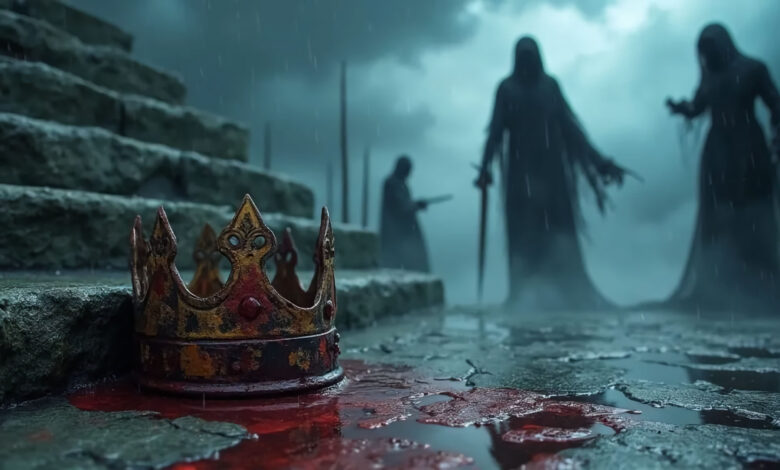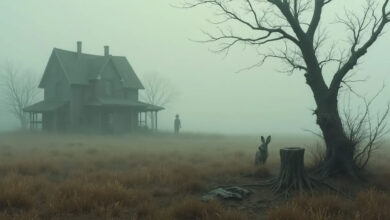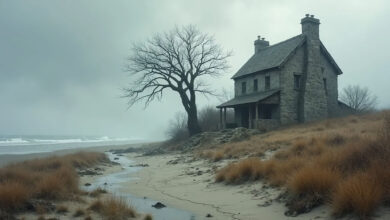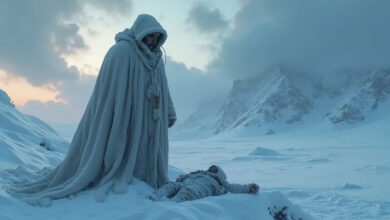
Author: William Shakespeare
First Performed: c.1606
Genre: Tragedy / Historical Drama
Level: GCSE English Literature (AQA, Edexcel, OCR, WJEC)
Setting: 11th-century Scotland
⭐ Why It Matters
One of Shakespeare’s most intense and studied tragedies, Macbeth explores ambition, guilt, fate, and power, all wrapped in dark, supernatural overtones. With vivid imagery, sharp pacing, and memorable characters, it’s a staple of the UK curriculum — perfect for analysing themes, symbols, and tragic structure.
👥 Main Characters
- Macbeth – A Scottish general, brave in battle but fatally ambitious.
- Lady Macbeth – His cunning and manipulative wife, who pushes him to act.
- The Three Witches – Mysterious, prophetic figures who spark Macbeth’s descent.
- Banquo – Macbeth’s noble friend; the witches say his descendants will be kings.
- King Duncan – The benevolent King of Scotland, murdered by Macbeth.
- Macduff – A Scottish nobleman who opposes Macbeth and ultimately defeats him.
- Malcolm – Duncan’s eldest son, rightful heir to the throne.
📚 Plot Summary
🔹 Act 1 – The Prophecy
On a Scottish moor, three witches greet Macbeth and Banquo. They prophesy that:
- Macbeth will become Thane of Cawdor and then King
- Banquo’s descendants will be kings, though he won’t
Soon after, Macbeth is made Thane of Cawdor — the prophecy begins to come true. Encouraged by his ambitious wife, Macbeth begins to consider murdering King Duncan.
🔹 Act 2 – Regicide
Macbeth murders Duncan in his sleep at their castle. Lady Macbeth frames the guards by smearing them with blood.
Macbeth becomes King of Scotland, but is wracked with guilt and paranoia.
🔹 Act 3 – Paranoia and Betrayal
Fearing Banquo and his prophecy, Macbeth hires assassins to kill Banquo and his son, Fleance.
Banquo is murdered; Fleance escapes.
At a feast, Macbeth is haunted by Banquo’s ghost, unnerving his guests. Lady Macbeth tries to maintain order, but cracks begin to show.
🔹 Act 4 – More Prophecies, More Madness
Macbeth visits the witches again. They deliver three new warnings:
- Beware Macduff
- No man born of woman shall harm Macbeth
- He will not be defeated until Birnam Wood comes to Dunsinane
Macbeth, feeling invincible, orders the slaughter of Macduff’s family. Macduff escapes to England and joins forces with Malcolm to take down Macbeth.
🔹 Act 5 – The Fall
Lady Macbeth, tormented by guilt, descends into madness and dies (likely by suicide).
Malcolm’s army advances, cutting branches from Birnam Wood to use as camouflage — the prophecy begins to unfold.
In the final battle, Macbeth is confronted by Macduff, who reveals he was “from his mother’s womb untimely ripped” — born by caesarean section, thus not “born of woman” in the usual sense.
Macduff kills Macbeth and hails Malcolm as king.
🧠 Themes & Takeaways
- Ambition & Power – Macbeth’s unchecked ambition leads to murder and madness.
- Fate vs Free Will – Are Macbeth’s actions predestined or chosen?
- Guilt & Conscience – Lady Macbeth’s descent into madness reflects the psychological cost of their crimes.
- The Supernatural – Witches and omens create a world where reality blurs with evil forces.
- Gender & Manipulation – Lady Macbeth challenges gender roles with chilling determination.
- Kingship & Tyranny – Duncan is a noble king; Macbeth becomes a murderous tyrant.





